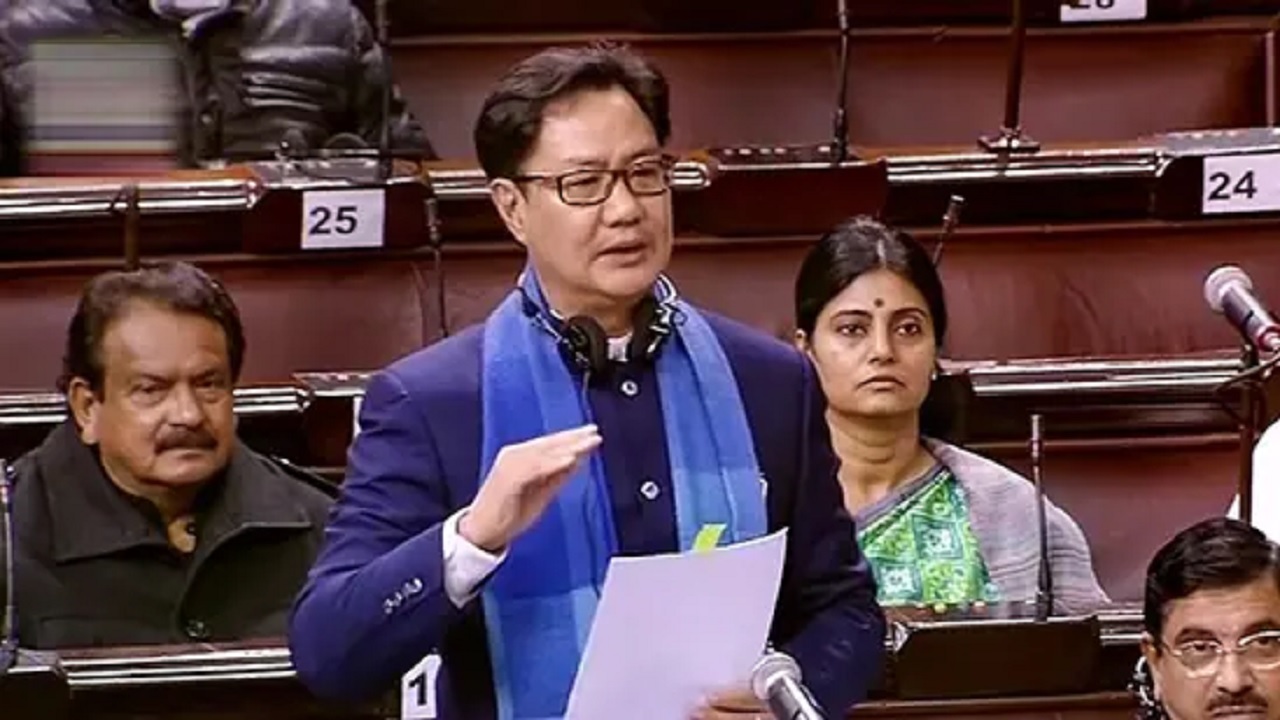
NEW DELHI: According to Legal Service of India, the Family Courts’ main purpose is to assist the smooth and effective disposal of cases relating to family matters. However, like any other system there are certain issues which become a matter of concern when it comes to the working of these courts.
Lok Sabha MPs on Tuesday flagged that over 11.4 lakh cases are pending in family courts across the country and called for their speedy settlement. The issue came up during a debate in the Lok Sabha on the Family Courts (Amendment) Bill, 2022, which was moved for consideration by Law Minister Kiren Rijiju.
Participating in the discussion, Kaushalendra Kumar of the Janata Dal (United) said the number of pending cases in family courts is increasing and stands at over 11.4 lakh. He called for a speedy settlement of the cases. Bhartruhari Mahtab of the Biju Janata Dal also echoed his views and said the government should say what it is doing to settle the pending cases in the family courts.
Setting up of Family Courts and its functioning lies within the domain of State Government in consultation with their respective High Courts. The Family Courts Act, 1984 provides for the establishment of Family Courts by the State Governments in consultation with the High Courts to promote conciliation and secure speedy settlement of disputes relating to marriage and family affairs. The Family Courts Act, 1984 was part of the trends of legal reforms concerning women. Because of the building pressure from various institutions lobbying for the welfare of women all over the country, the Act was expected to facilitate satisfactory resolution of disputes concerning the family through a forum expected to work expeditiously in a just manner and with an approach ensuring maximum welfare of society and dignity of women.
As per the Act, it is mandatory for the State Government to set up a Family Court for every city or a town whose population exceeds one million. In other areas of the States, the Family Courts may be set up if the State Governments deems it necessary. The 14th Finance Commission had recommended setting up 235 Family Courts during 2015-2020 in districts where the same were not available. The Commission also urged State Governments to utilize enhanced fiscal space available through tax devolution (32% to 42%) for this purpose.

Law Minister Kiren Rijiju said that “there are 715 family courts in the country in 26 states and Union territories…. Parliament is supreme in changing law and giving it effect but the interpretation will be done by the courts. Which court will decide that the application would be retrospective should also be laid down,” he said. When such courts are being opened, is it not the duty of the Centre to find out whether a notification has been done, Mahtab asked.
Initiating the discussion, Sunita Duggal of the Bharatiya Janata Party (BJP) said more appointments should be made in family courts so that the cases are resolved expeditiously.
The Family Courts Act was enacted in 1984 to set up family courts to promote conciliation and secure a speedy settlement of disputes related to marriage and family affairs. There are 715 family courts functioning across 26 states and Union territories. Two family courts were established in Nagaland in 2008 and three in Himachal Pradesh in 2019 through notifications issued by the respective state governments. The issue of lack of jurisdiction of the family courts in Himachal Pradesh came to the fore during proceedings of the Himachal Pradesh High Court last year.
Another petition in the Himachal Pradesh High Court stated that the central government had not issued any notification extending the Family Court Act to Himachal Pradesh and the state government directives to establish such courts were without any legal authority. The family courts in Nagaland too were operating without any legal authority since 2008.
The Family Courts (Amendment) Bill seeks to insert a provision in sub-section 3 of section 1 to provide for the establishment of family courts in Himachal Pradesh with effect from February 15, 2019 and in Nagaland with effect from September 12, 2008. The Bill also seeks to insert a new section 3A to retrospectively validate all actions under the said Act taken by the governments of Himachal Pradesh and Nagaland and the family courts of those states. Setting up family courts and their functioning fall within the domain of the state governments in consultation with the respective high courts.
Meanwhile, a major drawback of the Family Courts Act happens to be that it doesn’t explicitly empower Courts to grant injunctions to prevent domestic violence. While there has been progress, viz the enactment of the Protection of Women from Domestic Violence Act, 2005 which now extends to punishing women for acts of violence as well; there are still issues of jurisdiction to be tackled. It must be understood that the Family Courts Act has to be read in totality i.e. in accordance with the provisions in other laws, for example, the Civil Procedure Code on matters of jurisdiction.















